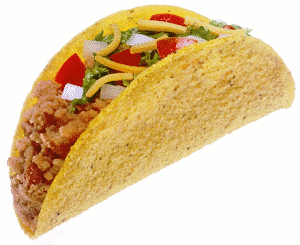The Taco Tuesday Trademark
This week, Taco Johns took on a lot of heat in response to its attempts to stop Oklahoma-based restaurant Iguana Mexican Grill from using the trademark “Taco Tuesday.” In response, the  Taco Johns organization tweeted “Taco Tuesday first connected to Taco John’s in ’82. It’s part of us too.” The only problem is, the documents Taco Johns filed with the United States Patent and Trademark Office (USPTO) have a date of first use at least as early as 1979.
Taco Johns organization tweeted “Taco Tuesday first connected to Taco John’s in ’82. It’s part of us too.” The only problem is, the documents Taco Johns filed with the United States Patent and Trademark Office (USPTO) have a date of first use at least as early as 1979.
The Devil In The Details
While this may not seem like a big deal to the average restaurant patron, providing an incorrect date of first use may subject the registrant to cancellation of its federal trademark registration. While the tweet giving the date of first use as 1982 may be incorrect, it would certainly prompt a defendant, or even a potential defendant, to investigate the validity of Taco Johns claimed date of first use. While I am certainly not privy to any documents supporting the actual date of first use, it does seem odd that the 1979 date is so coincidentally close to the date of first use claimed by a former federal trademark registration owner for the same “Taco Tuesday” trademark. It appears that the unusual proximity of the claimed dates of first use led to the two parties dividing up the rights to “Taco Tuesday,” so that the other registrant obtained the trademark rights in New Jersey and Taco Johns obtained rights everywhere else. While there is no evidence Taco Johns’ trademark registration is defective, unintentional defects like an incorrect date of first use may go unnoticed for years.
Trademark Registration Is Far From Child’s Play
While it seems unlikely that the Iguana Mexican Grill will go to the mat with Taco Johns over the right to use Taco Tuesday, little things like an incorrect date of first use on a federal trademark registration can mean a litigation swing of several hundred thousand dollars. One problem with filing trademark registrations is that the USPTO does not independently investigate the date you claim as a first use. The USPTO assumes the huge penalty associated with claiming the wrong date, cancellation, is a sufficient deterrent. Whereas the USPTO takes your word on your date of first use, trademark defendants do not. It is often not until you need the trademark registration the most, after you file a lawsuit, that you find out your oversight has made your registration worthless. Even if you are meticulous in your trademark filing, it is still a good idea to advise your marketing division not to broadcast things like a date of first use without first running it by legal.
HT: Stephanie Webb
Brett Trout





Recent Comments